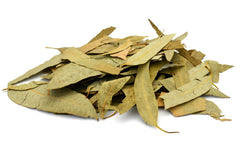Allergies
There are also different types of allergic reactions that lead to the release of different molecules in the immune system. These molecules are, for example, histamine, prostaglandins, immunoglobulins, mast cells, lymphocytes and others. Their release leads to inflammation and the occurrence of specific symptoms of varying severity.
The symptom of an allergy can be: skin rash, rhinitis, conjunctivitis, cough or bloating, as well as an asthma attack, atopic dermatitis, anaphylactic shock or circulatory failure. In one person, one organ is affected, such as the nose, while in another, the entire organ system, such as the respiratory system, is affected. Depending on the type of allergic reaction, the symptom may occur immediately or after some time.
Allergy symptoms can be very bothersome, but unfortunately, allergies are something that cannot be cured. However, you can do something to reduce your exposure to allergens or relieve symptoms. The most important is prevention, which consists in avoiding the allergen through, for example, an elimination diet, avoiding walks during the pollen of the allergenic plant, avoiding contact with the allergenic animal hair, regular cleaning if you are allergic to dust and mites, lowering the humidity of rooms if you are allergic to mold.
Antihistamine herbs
The classic way to relieve allergy symptoms is to use antihistamines, which block the activity of histamine and thus inhibit the formation of symptoms. Herbs can also help here. There are allergy herbs that inhibit the activity of histamine and other molecules that cause allergic symptoms. In the case of a strong allergy, herbs cannot always replace medications, but they are worth supporting.
What herbs for allergies?
Herbs for inhalant allergy (hay fever)
One of the leading herbs for inhalant allergies is chamomile. In herbal medicine, Roman chamomile (Anthemis nobilis) is mainly used, but common chamomile (Matricaria chamomilla) will also work. Both chamomiles, as well as oils and extracts obtained from them, have the ability to inhibit the release of histamine from mast cells.
Another well-known plant used in allergies is stinging nettle, which is an excellent herb for inhalant allergies. Nettle works by blocking histamine receptors. Nettle leaf infusions and extracts therefore help to reduce allergic symptoms caused by pollen allergy, such as hay fever.
Spirulina can also help relieve the symptoms of inhalant allergy. It is a plant with a widely proven antihistamine effect. Studies have shown that when taken daily, it relieves allergic rhinitis and cough, and also strengthens the immune system.
The symptom of an allergy can be: skin rash, rhinitis, conjunctivitis, cough or bloating, as well as an asthma attack, atopic dermatitis, anaphylactic shock or circulatory failure. In one person, one organ is affected, such as the nose, while in another, the entire organ system, such as the respiratory system, is affected. Depending on the type of allergic reaction, the symptom may occur immediately or after some time.
Allergy symptoms can be very bothersome, but unfortunately, allergies are something that cannot be cured. However, you can do something to reduce your exposure to allergens or relieve symptoms. The most important is prevention, which consists in avoiding the allergen through, for example, an elimination diet, avoiding walks during the pollen of the allergenic plant, avoiding contact with the allergenic animal hair, regular cleaning if you are allergic to dust and mites, lowering the humidity of rooms if you are allergic to mold.
Antihistamine herbs
The classic way to relieve allergy symptoms is to use antihistamines, which block the activity of histamine and thus inhibit the formation of symptoms. Herbs can also help here. There are allergy herbs that inhibit the activity of histamine and other molecules that cause allergic symptoms. In the case of a strong allergy, herbs cannot always replace medications, but they are worth supporting.
What herbs for allergies?
Herbs for inhalant allergy (hay fever)
One of the leading herbs for inhalant allergies is chamomile. In herbal medicine, Roman chamomile (Anthemis nobilis) is mainly used, but common chamomile (Matricaria chamomilla) will also work. Both chamomiles, as well as oils and extracts obtained from them, have the ability to inhibit the release of histamine from mast cells.
Another well-known plant used in allergies is stinging nettle, which is an excellent herb for inhalant allergies. Nettle works by blocking histamine receptors. Nettle leaf infusions and extracts therefore help to reduce allergic symptoms caused by pollen allergy, such as hay fever.
Spirulina can also help relieve the symptoms of inhalant allergy. It is a plant with a widely proven antihistamine effect. Studies have shown that when taken daily, it relieves allergic rhinitis and cough, and also strengthens the immune system.
Eucalyptus Leaves
We are proud to offer our customers the highest quality dried Eucalyptus leaves, carefully sourced and dried to preserve their delicate flavor and therapeutic benefits. To brew a soothing and...
From £2.79
Tags
- All Allergies
- Œil du Soleil
- AFA
- Algae
- Algae Bulgarian
- Algas Verdiazul
- Algues Bleu-Vert
- Algues Bleu-Vert du Lac Klamath
- Aloysia citrodora
- Aloysia triphylla
- Anabaena
- Aphanizomenon flos-aquae
- Arbre de Judas
- Arthrospira maxima
- Arthrospira platensis
- Ass's Foot
- BGA
- Bichu
- Black Elder
- Black-Berried Alder
- Blue Chamomile
- Blue Green Algae
- Blue Gum
- Blue Mallee
- Blue Mallee Oil
- Blue-Green Micro-Algae
- Boor Tree
- Bountry
- Brandlattich
- British Tobacco
- Bullsfoot
- Camomile
- Camomile Tea
- Camomilla
- Camomille
- Camomille Allemande
- Camomille Sauvage
- Camomille Tronquée
- Camomille Vraie
- Camomèle
- cats
- cats claw
- Cedrón
- Chamomile
- Chamomile Flowers
- Chamomile Tea
- Chamomilla recutita
- Chasse-Toux
- Chlorella
- Chlorella Algue
- claw
- Colt's Foot
- coltsfoot
- coltsfoot herb
- coltsfoot leaf
- coltsfoot leaves
- Common Elder
- Common Nettle
- Common Olive
- Coughwort
- Cyanobacteria
- Cyanobactérie
- Cyanophycée
- Dihe
- Dried Chamomile
- Echte Kamille
- elder
- elder flower
- elder tea
- elderberry
- elderberry flower
- Elderflower Tea
- Elderflowers
- Ellanwood
- Ellhorn
- Espirulina
- Eucalipto
- Eucalypti Folium
- Eucalyptol
- Eucalyptol Oil
- eucalyptus
- Eucalyptus bicostata
- Eucalyptus blatter
- Eucalyptus camaldulensis
- Eucalyptus cinereal
- Eucalyptus dives
- Eucalyptus Essential Oil
- Eucalyptus fructicetorum
- Eucalyptus globulus
- Eucalyptus gunnii
- Eucalyptus Leaf
- eucalyptus leaves
- Eucalyptus microcorys
- Eucalyptus odorata
- Eucalyptus Oil
- Eucalyptus piperita
- Eucalyptus polybractea
- Eucalyptus pulverulenta
- Eucalyptus radiata
- Eucalyptus sideroxylon
- Eucalyptus smithii
- eucalyptus tea
- European Alder
- European Black Elder
- European Black Elderflower
- European Elder Flower
- European Elderflower
- Farfarae Flos
- Farfarae Folium Leaf
- Feldkamille
- Feuille d'Olivier
- Feuille d’Ortie
- Fever Tree
- Fieberbaumblatter
- Fieldhove
- Filuis Ante Patrem
- Fleur de Camomile
- Fleur de Sureau
- Fleur de Sureau Noir
- Flor de Saúco
- Flos Sambuci
- Flower Velure
- Foal's Foot
- Foalswort
- Freshwater Green Algae
- German Chamomile
- Graine d’Ortie
- Grande Ortie
- Great Stinging Nettle
- Green Alga
- Green Algae
- Green Olive
- Griffe du Chat
- Guflatich
- Gully Gum
- Gully Gum Oil
- Gum Tree
- Hallfoot
- Haut Bois
- Hautbois
- Hawaiian Spirulina
- Hawk's Claw
- Herb Louisa
- Herbal
- herbal tea
- Herbe aux Pattes
- Herbe de Saint-Guérin
- Hierba Luisa
- Horsefoot
- Horsehoof
- Huile d'Eucalyptol
- Huile d'Eucalyptus
- Huile Essentielle d'Eucalyptus
- Hungarian Chamomile
- Jaitun
- Kamillen
- Klamath
- Klamath Lake Algae
- Kleine Kamille
- Kuandong Hua
- Kwandong Hwa
- leaf
- leaves
- Lemon
- lemon beebrush
- lemon verbena
- Lemon-Scented Verbena
- Liane du Pérou
- Life-giving Vine of Peru
- Lippia citrodora
- Lippia triphylla
- Louisa
- Lyngbya wollei
- Manzanilla
- Manzanilla Alemana
- Manzanilla Olive Fruit
- Matricaire
- Matricaire Camomille
- Matricaria chamomilla
- Matricaria recutita
- Matricariae Flos
- Microcystis aeruginosa
- Microcystis wesenbergii
- Nettle
- Nettle Leaf
- Nettle Radix
- Nettle Seed
- Nettle Tea
- Nettle Worth
- nettles
- Nostoc ellipsosporum
- Oleae Folium
- Olive Fruit
- Olive Fruit Pulp
- Olive Leaf
- Olive Pulp
- Olives
- Olivo
- Ortie
- Ortie Brûlante
- Ortie des Jardins
- Ortie Dioïque
- Ortie Méchante
- Ortiga
- Pas d'Ane
- Pas Diane
- Pas-de-Baudet
- Peruvian Liana
- Petite Camomille
- Pferdefut
- Pied-de-Cheval
- Pin Heads
- Plisson
- Powder
- Procheton
- Pulpe d'Olive
- Radix
- Red Gum
- root
- Sambuc
- Sambucus
- Sambucus Flos
- sambucus nigra
- Sambucus Nigra Flos
- Samento
- Seaweed
- Seaweed Powder
- Seuillon
- Small Nettle
- Spirulina Blue-Green Algae
- Spirulina Fusiformis
- Spirulina maxima
- Spirulina pacifica
- Spirulina platensis
- spirulina tablets
- Spiruline
- Spiruline d’Hawaii
- Stinging
- Stinging Nettle
- Stinging Nettles
- Stringy Bark Tree
- Sugandhapatra
- Sureau Commun
- Sureau Noir
- Sussier
- Sweet Elder
- Sweet False Chamomile
- tablets
- Taconnet
- Tailapatra
- Tallowweed
- Tasmanian Blue Gum
- Tea
- Tecuitlatl
- True Chamomile
- Tussilage
- Tussilage Pas d'Âne
- Tussilago farfara
- Uncaria guianensis
- Uncaria tomentosa
- Urtica
- Urtica dioica
- Urtica urens
- Urticae Herba et Folium
- Urticae Radix
- Urticae Radix.
- Uña de Caballo
- Uña de Gato
- verbena
- Verbena Citrodora
- Verbena triphylla
- Verte d'Eau Douce
- Verveine Citronnelle
- Verveine Citronnée
- Verveine des Indes
- Verveine du Chili
- Verveine du Pérou
- Verveine Odorante
- vilcacora
- Wild Chamomile
- Yaeyama
- Zappania citrodora


